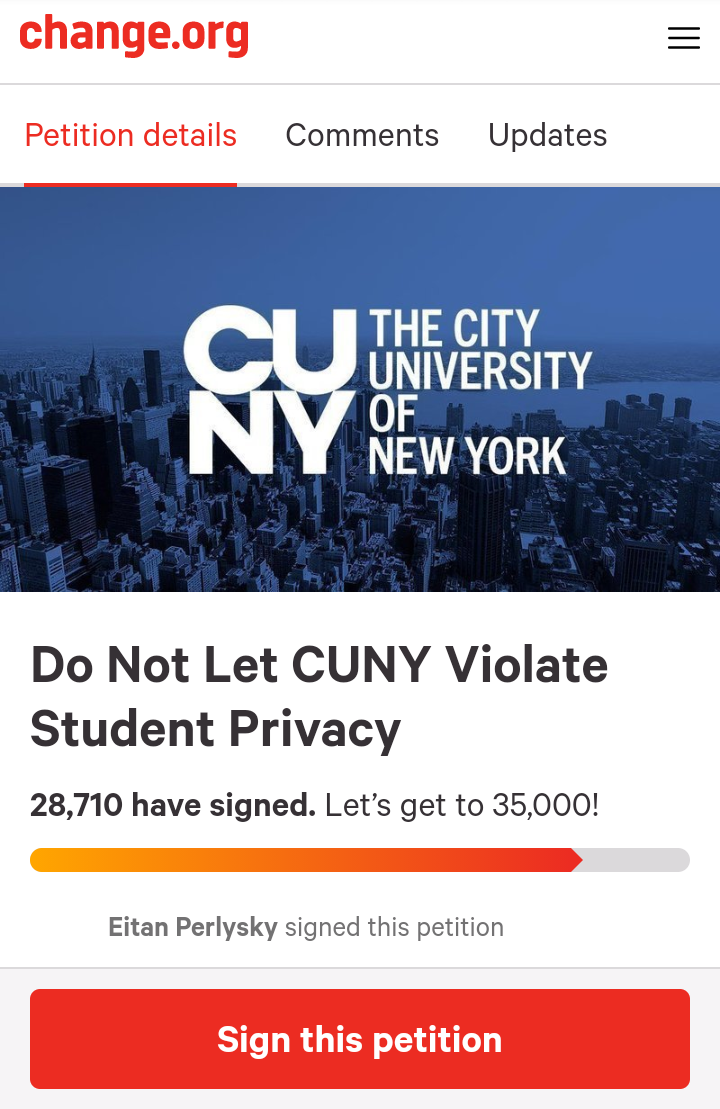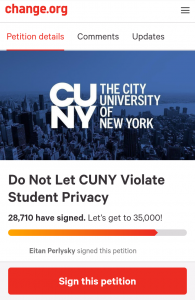

The petition titled “Do Not Let CUNY Violate Student Privacy” has secured a victory. The petition, addressed to CUNY officials and signed by over 28,000 CUNY students, can claim its victory in the contest over students’ privacy during the age of remote schooling, after CUNY announced that it would not go forward with the purchase of licensing for Proctortrack, a program used to digitally proctor exams.
The petition was the brainchild of USG Chief of Staff Aharon Grama. Uploaded to Change.org, Grama’s aim was to stop CUNY’s attempts to procure licensing to distribute proctoring software such as Protorio or Proctortrack.
On Oct. 22, Grama posted an update to the petition page where it linked to a CUNY wide update that stated: “Due to recent events, the University will not proceed with the implementation of Proctortrack as previously announced.” Last week, Proctortrack had a security breach where e-mails with racial slurs were sent out from the company’s support address. The breach caused it to temporarily cease operation, and had since returned to college’s who already had it in use.
The proctoring software has seen a growth in notoriety for its ability to uphold academic integrity while forcing students to forfeit much of their online, and even in-person privacy. The issue, as Grama means to call out, is that CUNY shouldn’t be in the market for software which can read and change all the data on a student’s web browser, capture all screen content, monitor and record eye movements via webcam, record and store all sounds while in use, and more.
“All of these proctoring softwares are trying to be foolproof against cheating,” Grama told the Vanguard. “The thing is, the more foolproof it is against cheating and the better it is at catching cheaters, the more invasive it is going to get.”
Although Grama’s petition has done a great deal to bring attention to this issue, and perhaps had a hand in warding off any purchase for this semester, CUNY remains set on implementing some sort of proctoring program that professors can access. “Our colleagues in CIS will be looking into potential remote proctoring tools for Spring 2021,” CUNY’s update said.
Anticipating the University’s continued efforts, Grama remains steadfast in his commitment to reach out to the administration and arrive at a more balanced solution. “We have to find a balance where it is the minimum invasion of privacy on one hand, and on the other hand where we can actually have academic integrity,” said Grama.
